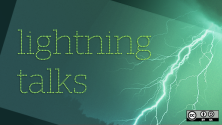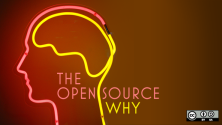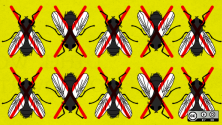Speaking at the Pentagon on WikiLeaks' disclosure of thousands of classified documents, US Defense Secretary Robert Gates used the word "trust" fourteen times.
That is one of the worst aspects of this, as far as I'm concerned: Will people trust us? Will people whose lives are on the line trust us to keep their identities secret? Will other governments trust us to keep their documents and their intelligence secret?
You know, it's a funny thing, and especially for a so-called realist, but it's amazing how much trust matters in relationships, whether it's with governments or with individuals around the world.
And on the other side of the argument, WikiLeaks founder Julian Assange, who was "disappointed" by this criticism, said in a Frontline Club press conference:
We have a harm-minimization process. Our goal is just reform. Our method is transparency. But we do not put the method before the goal.
Generally when we talk about the benefits of the open source way, we talk about how transparency increases trust. What's implied, assumed, and sometimes forgotten is that that means voluntary transparency.
I'm not willing to argue that involuntary transparency--or as we're calling it in this case, a leak--is by definition wrong in all cases. And leaks are hardly new--think of the WWII military refrain, "Loose lips sink ships." History has been changed, sometimes clearly for the better, by involuntary transparency. If you'd like to consider it further, George Mason University has a webpage devoted to the history of leaks. And more than one person, including Daniel Ellsburg, has noted that it's difficult not to think of the WikiLeaks story as the 2010 version of the Pentagon Papers.
So if that's the case, to what degree can a government--particularly a war-fighting one--operate transparently? It's complicated. On the one hand, the more that is public, the less there is to be leaked. Full disclosure requires greater written communication, and today that means web-based dissemination. But the more transparency that is expected and required, the more temptation there will be to communicate orally, with no record, which also means no accountability, history, or possibility to confirm responsibility.
One of the biggest benefits to voluntary transparency is that the information source has control over the information. With greater secrecy, the control is in the hands of those entrusted and eventually in the hands of someone like WikiLeaks, who then gets to decide what the public knows. The WikiLeaks of the world become the ones with the power, rather than those we have elected or otherwise entrusted with our national security, our governments, and even our lives.
Further, WikiLeaks, whether what they've done is right or wrong, unarguably works with a degree of hypocrisy. Their own operations are voluntarily opaque, both externally and within, but with a mission of inflicting involuntary transparency on others. Is that necessary to their goals? Necessary to their lives? Or just unequivocally wrong?
Not just critics, but some supporters, can't help but speculate on the two-faced transparency stance. Conspiracy theorists have a buffet of options, from Icelandic government support to the suggestion that WikiLeaks is actually an arm of the CIA. (But don't worry, WikiLeaks answers that one in their FAQ.) Even if they're transforming journalism or changing history--even if they were universally heralded as single-handed makers of world peace (unlikely)--it's hard to put trust in and give credibility to an organization that can't embrace its own values.
Maybe in time, WikiLeaks will find itself on the other side of a leak.







9 Comments